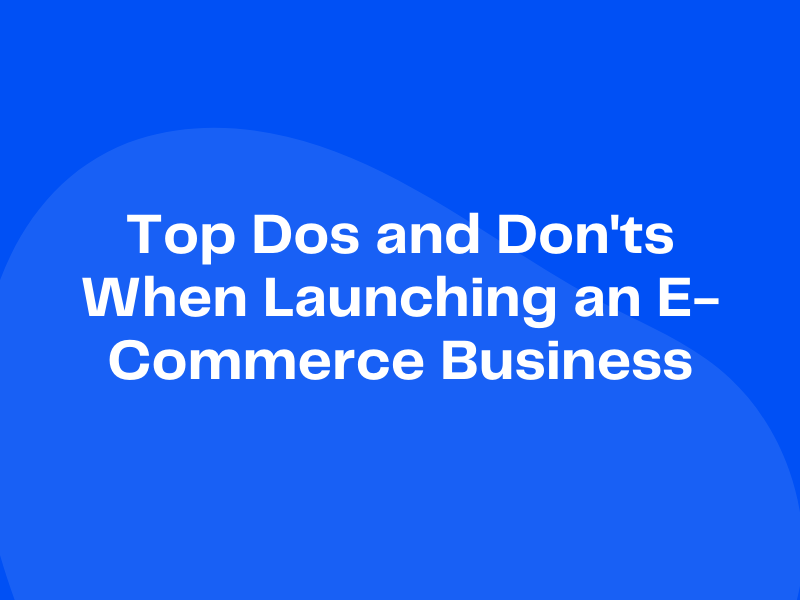
Top Dos and Don’ts When Launching an E-Commerce Business
There is no shortage of balls to juggle when you launch an e-commerce business. Just because you don’t have the hassle and expense of a storefront to deal with doesn’t mean you’re living on easy street.
The good news is that you’re not the first to go down this road, and you can learn a lot from professionals that have forged the path ahead of you. Here are just a few dos and don’ts to consider when launching your e-commerce business.
DO: Create a Modern and Appealing Website
Unlike a brick-and-mortar establishment, you won’t have tangible product displays or peppy sales associates to greet visitors and entice them into making purchases. Your website is your store, your sales force, and your opportunity to make a good first impression and convince consumers to patronize your brand.
In other words, launching a successful e-commerce business relies somewhat on how attractive, professional, user-friendly, and engaging your website is. Naturally, you still have to get people in the door. However, you want to take measures to ensure they remain long enough to make purchases once they find you, and your web design is the key.
DO: Build a Brand
You’re selling more than products or services; you’re selling comfort, convenience, ideals, and/or a lifestyle. This is the crux of creating a brand rather than making a sale. It pays to launch your e-commerce business with this concept in mind so that you don’t have to backpedal down the line when your business grows large enough to demand branding.
DO: Budget for Marketing and SEO
If you’re working with a limited budget, as many startups are, you may be hesitant to allocate a lot of funding to marketing and SEO. Unfortunately, you cannot compete in the online arena without these efforts.
Customers seeking your goods or services need to find you quickly. While there is a plethora of ways to market your business for free, you’re likely to see much faster results when you take advantage of paid professionals who know how to help you raise your page rank and gain followers rapidly.
DON’T: Depend on Additional Funding
Many startups make the mistake of banking on a great idea and then resting on one’s laurels because of promised funding down the line. Investors expect to see a profit at some point and you don’t have endless leeway to make this happen.
If you fail to meet set goals and deadlines, the funding you were promised at the outset could easily disappear leaving you scrambling. It is imperative that you ramp up and start earning income as quickly as possible. Whether you’re able to rely on your profits to support your business or you still need a boost from investors down the line, everyone is going to be more confident if you can prove yourself with early progress and profitability.
DON’T: Diversify Before You’re Ready
You can’t please all people all the time, but some online startups try to do just that. The problem is that you have to be really good at one thing before you can begin to diversify.
Look at companies like Google or Facebook. Sure, Google is dabbling in self-driving cars now and Facebook bought Zynga and Instagram. However, before these new ventures Google became the dominant search engine and Facebook became the leading social media platform. In short, they became the best at their core business – they didn’t diversify until they were already industry giants.
DON’T: Go Down the Rabbit Hole
When you first launch your business you can expect to work long days and wear a lot of hats. However, if your business plan is solid you should start to see some money coming in within several months to a couple of years of launching (depending on the product or service you’re developing).
From there you can hire help. A larger workforce will help you focus on managing your business instead of fulfilling orders and handling correspondence and begin to think about scaling up operations. If this isn’t the case and you’re twelve months in and still losing money, it’s time to reassess.
You either need to change your business strategy or think very seriously about whether or not your e-commerce business is sustainable, scalable, and profitable. Not every business will succeed in the online arena and you don’t want to dig yourself further and further into debt if there’s no light at the end of the tunnel.
